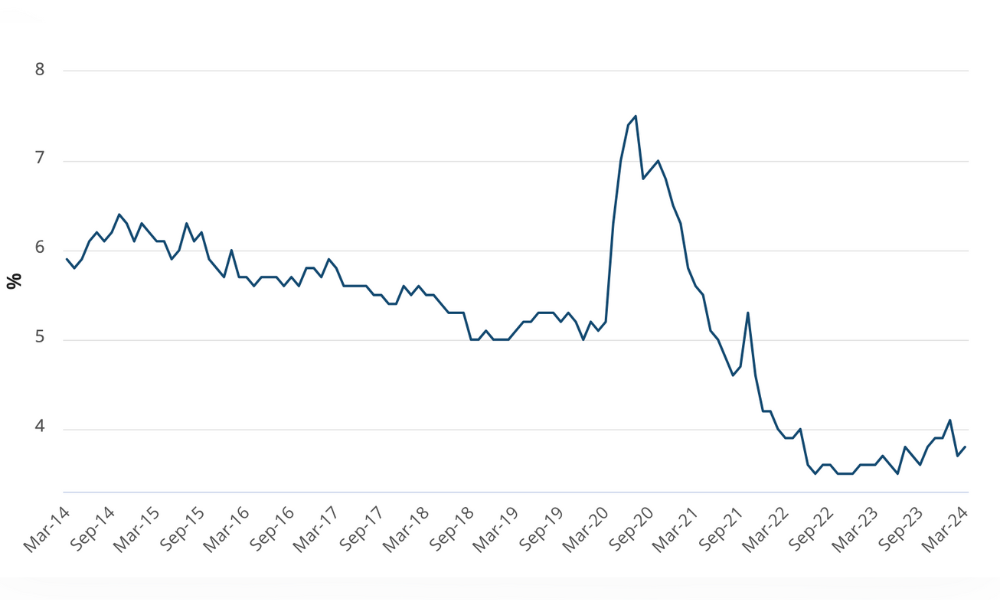Sarah Rodgers provides some practical tips for a successful career transition…

Sarah Rodgers provides some practical tips for a successful career transition…
Earlier this week I attended a Mobile-ising Women in Business Conference in the capital, and one of the speakers suggested that our millennial colleagues will have an estimated 17 careers in their lives. That’s right 17! I was astounded! They further suggested that some 60% of future jobs don’t exist today.
This has wide reaching implications; for individuals as they strive to remain relevant in their working lives, for HR teams and organisations as it relates to workforce planning and talent management, for parents and career counsellors as they help our youth make career choices that will serve them, and finally, for our education sector who will need to adapt their curriculums to ensure they are offering meaningful and relevant training. It requires a paradigm shift in how we think about work and education. The digital disruption is well and truly upon us; exciting and daunting all at the same time!
For a large majority of non-millennials, making a career change is either a choice or has been forced upon us when a restructure at work has left us with no job. The days of qualifying in one field and spending the rest of our working life in the same (or similar) job, is already diminishing; if the research is true, then for those of us who have more than 10 years left in our working lives, we’re going to have to adapt. Some will relish this, others will find it a bit overwhelming, and perhaps not know where or how to embark on such a change.
So you’re considering a change but don’t know where to start?
a) Direction: once you’ve decided what you want to be doing, try not to set an unrealistic deadline for getting there. It may take you longer than you think, but so long as the decisions you make in this time take you in the right direction, that’s ok;
b) Financial Considerations: most of us don’t have the luxury of being able to give up one job without another, or take an initial cut in pay, so think about retraining (if that’s necessary) whilst you are still working. Putting yourself under financial pressure may create more stress than continuing in a job you don’t love for a few years;
c) Highlight your transferable skills: any future employer might not see the link between your past experiences and where you want to get to; so be sure to highlight any transferable skills when you are starting to apply for jobs in your new field; and
d) Timing: timing is everything, you’ve heard that saying, and I think when it comes to career change, it’s probably true. Be sure to consider the impact on your life holistically when deciding when the best time to make a change is.
Don’t be afraid to ask for help and if you are too shy to advertise your aspirations to your current workplace, take some advice from a millennial colleague/friend; they are great at this! Finally, never let go of your dream; you deserve to be doing what you love.
Sarah Rodgers is the Principal of iolite consulting. For further information visit www.ioliteconsulting.com.au
Earlier this week I attended a Mobile-ising Women in Business Conference in the capital, and one of the speakers suggested that our millennial colleagues will have an estimated 17 careers in their lives. That’s right 17! I was astounded! They further suggested that some 60% of future jobs don’t exist today.
This has wide reaching implications; for individuals as they strive to remain relevant in their working lives, for HR teams and organisations as it relates to workforce planning and talent management, for parents and career counsellors as they help our youth make career choices that will serve them, and finally, for our education sector who will need to adapt their curriculums to ensure they are offering meaningful and relevant training. It requires a paradigm shift in how we think about work and education. The digital disruption is well and truly upon us; exciting and daunting all at the same time!
For a large majority of non-millennials, making a career change is either a choice or has been forced upon us when a restructure at work has left us with no job. The days of qualifying in one field and spending the rest of our working life in the same (or similar) job, is already diminishing; if the research is true, then for those of us who have more than 10 years left in our working lives, we’re going to have to adapt. Some will relish this, others will find it a bit overwhelming, and perhaps not know where or how to embark on such a change.
So you’re considering a change but don’t know where to start?
a) Direction: once you’ve decided what you want to be doing, try not to set an unrealistic deadline for getting there. It may take you longer than you think, but so long as the decisions you make in this time take you in the right direction, that’s ok;
b) Financial Considerations: most of us don’t have the luxury of being able to give up one job without another, or take an initial cut in pay, so think about retraining (if that’s necessary) whilst you are still working. Putting yourself under financial pressure may create more stress than continuing in a job you don’t love for a few years;
c) Highlight your transferable skills: any future employer might not see the link between your past experiences and where you want to get to; so be sure to highlight any transferable skills when you are starting to apply for jobs in your new field; and
d) Timing: timing is everything, you’ve heard that saying, and I think when it comes to career change, it’s probably true. Be sure to consider the impact on your life holistically when deciding when the best time to make a change is.
Don’t be afraid to ask for help and if you are too shy to advertise your aspirations to your current workplace, take some advice from a millennial colleague/friend; they are great at this! Finally, never let go of your dream; you deserve to be doing what you love.
Sarah Rodgers is the Principal of iolite consulting. For further information visit www.ioliteconsulting.com.au





